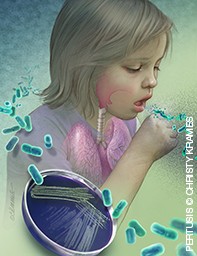Peer Reviewed
Feature Article Infectious diseases
Childhood infections: diagnosis and management in general practice
Abstract
Infections are common in childhood, mostly self-limited and usually diagnosed clinically. A delayed antibiotic strategy or short-course empirical antibiotic therapy is often appropriate for the infections that are more frequently encountered. Possible complications and potential transmission should be considered.
Key Points
- Childhood infections often have characteristic features that enable diagnosis and management based on history and examination.
- Laboratory confirmation is important when there is potential for complications in the patient or susceptible contacts, or an unusual presentation.
- Close monitoring of clinical progress guides investigation and management, and may limit complications.
- Young infants may have atypical presentations and more severe disease.
- Rational antibiotic use is crucial to maximising patient benefit, avoiding side effects and minimising antibiotic resistance.
Picture credit: © Christy Krames
Purchase the PDF version of this article
Already a subscriber? Login here.

